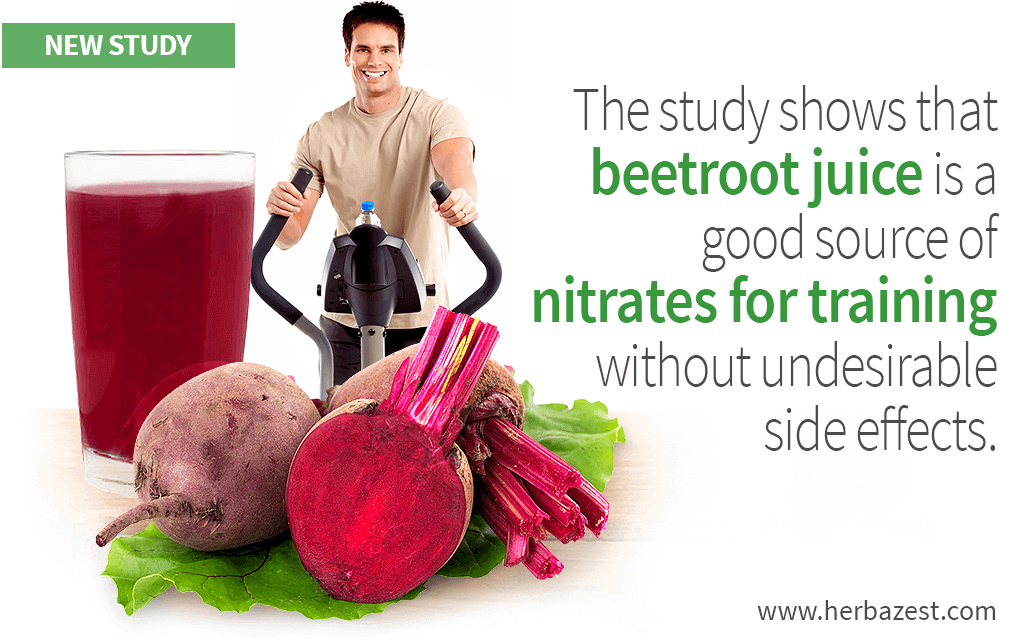A study performed on beetroot in 2012 compared the effectiveness of direct consumption with the daily intake of nitrate supplements - which causes a number of undesirable side effects, include headaches, lightheadedness, nausea, flushing, and low blood pressure - to improve running performance in healthy individuals. Although the results pointed to beetroot as a superior natural source of nitrates, with noticeable benefits for endurance training, they didn't clearly explain how beetroot's active compounds affect the body.
In light of these results, a new study has been conducted in order to explain the way beetroot works in healthy men, and exactly how it improves their exercise performance. A scientific team at Penn State University was composed by David Proctor, professor of kinesiology and physiology; Penny Kris-Etherton, professor of nutrition; Ann C. Skulas-Ray, research associate in nutritional sciences; David J. Moore, of Penn State's Intercollege Graduate Degree Program in Physiology; David G. Maurer, a graduate student in Penn State's Department of Kinesiology; Michael P. Flanagan, of Penn State Hershey College of Medicine; and Swati Basu and Daniel B. Kim-Shapiro, both professors in the department of physics at Wake Forest University.
The Study
Based on the hypothesis that acute dietary nitrate supplementation from natural beetroot juice would increase blood flow and arterial dilation in forearm during graded handgrip exercise, a double-blind, placebo-controlled crossover study was conducted in 12 young, healthy men in their twenties.
The group consumed a beetroot juice preparation that provided either 0.8 g of nitrate or placebo on two study visits. Three hours after consumption, brachial artery diameter, flow, and blood velocity were measured through a Doppler ultrasound, at rest and during six intensive exercise sessions.
The Results
Compared with the placebo, beetroot supplementation significantly raised the concentrations of plasma nitrate and nitrite in blood and lowered resting arterial pulse wave velocity (PWV), which indicates good absorption, conversion, and biological response. However, nitrate supplementation through beetroot juice had no effect on brachial artery diameter, flow, or shear rates, neither at rest nor during exercise.
The results support the idea that daily nitrate supplementation through beetroot juice favorably modifies arterial PWV, but has no effect in increasing blood flow or brachial artery vasodilation during non-fatiguing forearm exercise in healthy young men.
What Does This Mean?
Since the intake of nitrate supplements has been shown to cause a number of undesirable effects, and because vegetables boast health benefits, the positive results of this trial strongly suggest that, in order to improve exercise performance, healthy individuals should be obtaining their daily doses of nitrates from whole vegetables, such as beetroot.
This study was published in February 2015 in the journal Applied Physiology, Nutrition, and Metabolism.
Sources
- Applied Physiology, Nutrition, and Metabolism, Acute dietary nitrate supplementation does not augment submaximal forearm exercise hyperemia in healthy young men, 2015
- Journal of the Academy of Nutrition and Dietetics, Whole beetroot consumption acutely improves running performance, 2012




